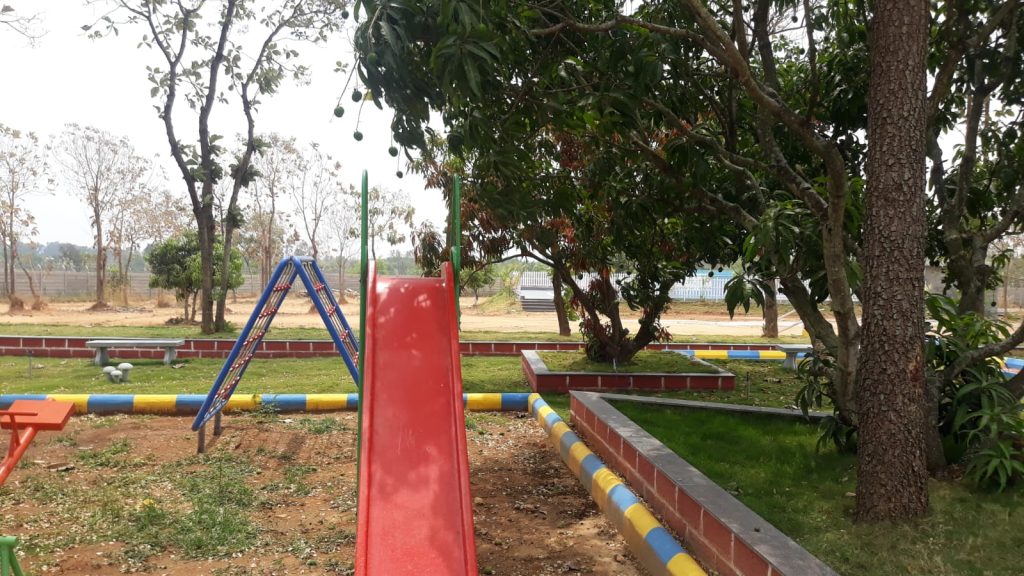
Many communities benefit significantly from managed farmlands, as they provide a variety of advantages beyond the primary function of food production. From supporting the preservation of natural habitats to local economies, these lands play a significant role in maintaining the health and well-being of both people and the environment. If you are searching for the best managed farmland near me, SharanyaFarm-managed farmlands emerge as vibrant hubs of community support, fostering social harmony, and creating lasting connections. In this blog, we’ll explore the social impact of managed farmlands, we delve into the ways these agricultural spaces become catalysts for positive change, empowering and nurturing local communities.
Social Impact of Managed Farmlands
Managed farmlands offer a variety of social advantages to local communities. They frequently act as gathering spots for neighbourhood events and festivals, such as farmers’ markets. These farmlands foster a sense of community pride while bringing people together and also supporting nearby businesses. Managed farmlands can also offer chances for learning and entertainment, such as agricultural tours and hiking paths. These activities not only enhance physical health but also foster a sense of connection to the outdoors and an understanding of sustainable agricultural practices.
Cultivating Community Bonds
Managed farmlands serve as catalysts for community building, creating spaces where individuals come together to share a common purpose. These farms often host community events, farmers’ markets, and educational programs that bring neighbours and farmers into a shared space. The act of cultivating and harvesting becomes a communal effort, fostering a sense of belonging and pride among residents.
Empowering Local Economies
One of the most significant social impacts of managed farmlands is their contribution to local economies. By promoting the consumption of locally grown produce, these farms stimulate economic growth. Local farmer’s markets and farm-to-table initiatives create a direct link between farmers and consumers, allowing revenue to circulate within the community. This, in turn, supports small businesses and enhances the overall economic resilience of the region.
Sustainable Employment Opportunities
Managed farmlands often become sources of sustainable employment opportunities within the community. As these farms expand and diversify, they require a workforce skilled in various aspects of agriculture, from cultivation to marketing. This not only provides jobs but also fosters a sense of pride and purpose among community members contributing to the growth of the local agricultural industry.
Education and Skill Development
Education is a cornerstone of the social impact of managed farmlands. Many farms prioritise community outreach and educational programs to promote sustainable farming practices. Workshops, seminars, and on-farm experiences help community members develop valuable skills, encouraging a deeper understanding of agriculture and environmental stewardship. These educational initiatives create a knowledgeable and empowered community that actively engages with its local food systems.
Fostering Environmental Awareness
Managed farmlands play a crucial role in fostering environmental consciousness within communities. Through sustainable farming practices, these farms become living classrooms where residents learn about the importance of biodiversity, soil health, and water conservation. If you are searching for farmland for sale near me, then look no further than SharanyaFarm. This environmental awareness of these farmlands often leads to community-driven initiatives for ecological conservation and responsible land management.
Addressing Food Insecurity
In regions where food insecurity is a concern, managed farmlands play a pivotal role in addressing this challenge. By cultivating a diverse range of crops and often engaging in community-supported agriculture (CSA) models, these farms contribute to local food resilience. Residents gain increased access to fresh, locally grown produce, promoting healthier diets and reducing dependency on external food sources.
Celebrating Cultural Heritage
Managed farmlands become cultural touchstones, preserving and celebrating local traditions. In many cases, these farms incorporate heirloom crops and traditional farming methods, connecting communities to their agricultural heritage. Festivals, seasonal celebrations, and cultural events hosted on managed farmlands become opportunities for residents to reconnect with their roots and celebrate shared histories.
Strengthening Social Ties
The very act of engaging in farming activities fosters a sense of camaraderie and teamwork. Community members often come together for planting and harvesting seasons, creating a network of social support. Shared experiences on the farm build bonds that extend beyond agricultural activities, creating a tight-knit community that stands united in both challenges and triumphs.
Summary
The social impact of managed farmlands transcends the boundaries of traditional agriculture, transforming these spaces into dynamic community hubs. By cultivating bonds, empowering local economies, providing sustainable employment, and fostering environmental awareness, managed farmlands contribute to the holistic well-being of the communities they serve. SharanyaFarm is a managed farmland near Mysore Road, that is committed towards promoting a healthy environmental and economic balance in society. They are an essential part of our communities since they bring about positive effects on the economy, the environment, and society.